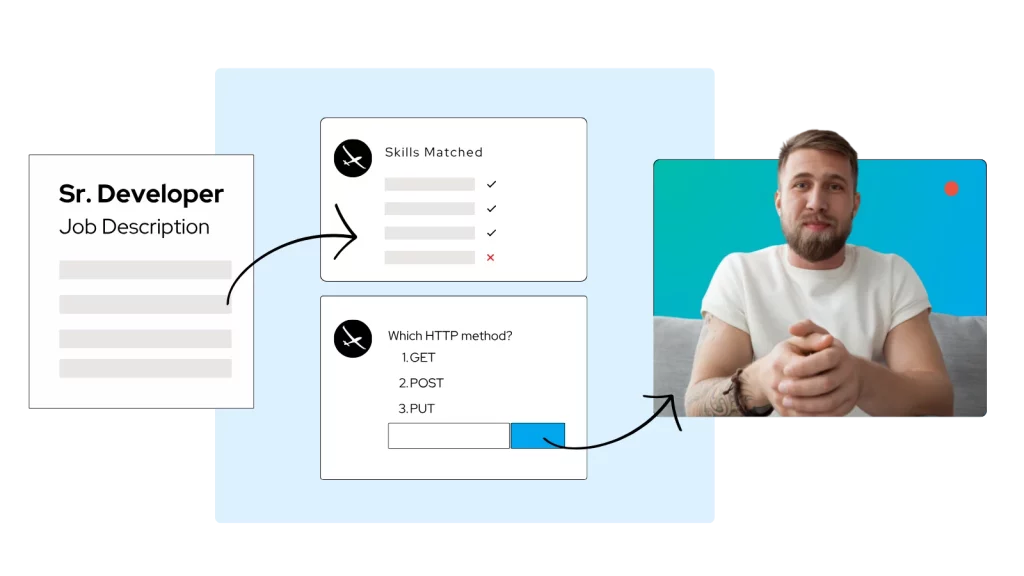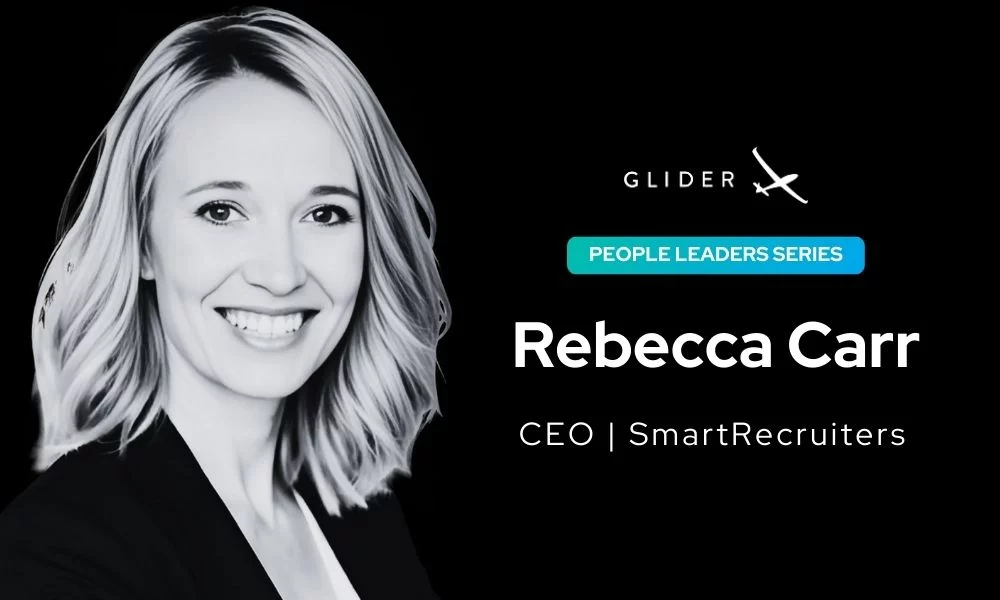Introduction
A screening interview is an essential step in the recruitment process designed to evaluate whether a candidate possesses the basic qualifications required for a specific role. It acts as a filter, allowing employers to manage large volumes of applications efficiently by identifying the most suitable candidates early on. This initial assessment helps save time and resources for both the employer and the candidate, making the hiring process more effective and streamlined.
What is a Screening Interview?
A screening interview is typically a short, preliminary interview conducted to determine if a candidate meets the minimum qualifications for a job. This interview can be conducted over the phone, via video chat, via AI screening software, or in person, and it usually involves a review of the candidate’s resume, qualifications, and a few targeted questions. The primary goal is to narrow down the pool of applicants to those who are the best fit for the position and who will move forward to more in-depth interviews.
Preparing for the Screening Interview
Effective preparation is key to conducting a successful screening interview. Here are some steps to ensure you are well-prepared:
Review the Job Description:
- Thoroughly understand the job requirements and responsibilities. This will help you formulate relevant questions and assess the candidate’s qualifications accurately.
Examine the Candidate’s Resume:
- Carefully review the candidate’s resume to understand their background, experience, and skills. Note any areas that require further clarification or exploration during the interview.
Prepare a Standardized List of Questions:
- Develop a set of standardized questions that align with the job requirements. These questions should cover essential aspects such as experience, skills, and cultural fit.
Set a Clear Objective:
- Define what you aim to achieve from the screening interview. This could include verifying the candidate’s qualifications, assessing their communication skills, and determining their interest in the role.
Conducting the Screening Interview
When conducting a screening interview, it’s important to create a positive and professional experience for the candidate while gathering the necessary information to make an informed decision. Here are some tips and best practices:
Start with a Warm Introduction:
- Begin the interview by introducing yourself and explaining the purpose of the screening interview. This sets the tone and helps the candidate feel more comfortable.
Ask Open-Ended Questions:
- Use open-ended questions to encourage the candidate to provide detailed responses. This allows you to gain deeper insights into their qualifications and experience. Examples include:
- “Can you tell me about your current role and responsibilities?”
- “What motivated you to apply for this position?”
Assess Qualifications and Experience:
- Focus on questions that assess the candidate’s relevant experience and skills. Compare their qualifications with the job requirements to determine if they are a good fit. Examples include:
- “How does your experience align with the requirements of this role?”
- “Can you describe a project you worked on that is similar to what we do here?”
Evaluate Communication Skills:
- Pay attention to how the candidate communicates their responses. Good communication skills are often a key requirement for many roles, and this is a valuable opportunity to assess them.
Gauge Cultural Fit:
- Ask questions that help you understand if the candidate would be a good cultural fit for your organization. Examples include:
- “What type of work environment do you thrive in?”
- “How do you handle working under pressure or tight deadlines?”
Discuss Availability and Salary Expectations:
- Clarify the candidate’s availability to start the job and discuss their salary expectations to ensure alignment with the company’s budget. This helps avoid potential misunderstandings later in the process.
Provide an Opportunity for Questions:
- Allow the candidate to ask questions about the role, the team, and the company. This not only provides them with valuable information but also shows that you value their interest in the position.
Explain Next Steps:
- Conclude the interview by explaining the next steps in the hiring process and providing a realistic timeline for when they can expect to hear back.
Leveraging Technology in Screening Interviews
Incorporating technology into the screening interview process can enhance efficiency and effectiveness. AI-powered tools can automate many aspects of the screening process, providing several benefits:
Automated Screening:
- AI can automatically screen resumes and shortlist candidates based on predefined criteria, saving significant time and ensuring only qualified candidates move forward.
Video Interviews:
- Platforms that offer video interview capabilities allow candidates to record responses to pre-set questions. This flexibility can accommodate candidates’ schedules and streamline the screening process.
Data-Driven Decisions:
- AI tools provide detailed analytics and insights into candidate performance, helping recruiters make informed decisions based on data rather than subjective impressions.
Enhanced Candidate Experience:
- Automated scheduling and real-time feedback enhance the candidate experience, making the process smoother and more transparent.
AI Software in Screening Interviews

AI software can take the lead in conducting efficient and effective screening interviews. Here are some key features that AI screening software can offer to facilitate a faster and more accurate screening process:
AI-Generated Questions:
- Upload a job description, and the AI will generate relevant and vetted questions to evaluate candidates.
AI Evaluation:
- The AI evaluates and scores candidate responses based on factors from skills to cultural fit, ensuring that the best candidates are submitted.
AI Guidance:
- During interviews, AI actively guides recruiters, prompting them with questions and providing real-time feedback.
Interview Summaries:
- Each candidate interview comes with a summary, transcript, and highlights, making it easier to review and compare candidates.
Skill Matching:
- The AI automatically matches skills to the job based on the job description, ensuring that candidates meet the required qualifications.
AI Proctoring:
- Transparent monitoring eliminates fraud and suspicious behaviors during the interview process.
ATS Integrations:
- AI screening software are integrated into your Applicant Tracking System (ATS) allowing you to update the ATS with interview data seamlessly.
Performance Reports:
- Receiving insights to optimize the interview process and enhance recruiter performance.
Candidate Reports:
- Generating client-ready reports to expedite candidate submissions and make informed hiring decisions.
Common Screening Interview Questions
Having a set of well-thought-out questions can help ensure you gather all the necessary information during the screening interview. Here are some common questions to consider:
Tell me about yourself.
- This open-ended question allows candidates to provide a brief overview of their background and experience.
Why are you interested in this position?
- This helps assess the candidate’s motivation and alignment with the role and company.
What relevant experience do you have for this role?
- Focus on the candidate’s specific experience and skills that are pertinent to the job.
What are your salary expectations?
- Discussing salary expectations early can help ensure that both parties are on the same page and avoid potential misunderstandings later.
When can you start?
- Understanding the candidate’s availability is important for planning the hiring process and ensuring timely onboarding.
Do you have any questions for us?
- This allows candidates to clarify any doubts they have and demonstrates their interest in the role.
Best Practices for Screening Interviews
To maximize the benefits of screening interviews, it’s important to follow best practices:
Maintain Consistency:
- Use a consistent set of questions for all candidates applying for the same role. This ensures a fair comparison and helps in making objective decisions.
Take Detailed Notes:
- Document the candidate’s responses and any observations during the interview. These notes will be valuable for comparing candidates and making informed decisions.
Communicate Clearly:
- Explain the next steps in the hiring process to the candidate. Provide a realistic timeline for when they can expect to hear back and what to expect in future stages.
Provide Feedback:
- Offer constructive feedback to candidates who do not move forward. This can help them improve for future opportunities and leaves a positive impression of your company.
Stay Objective:
- Avoid biases and focus on the candidate’s qualifications, experience, and potential fit for the role. Use structured evaluation criteria to ensure a fair and objective assessment.



